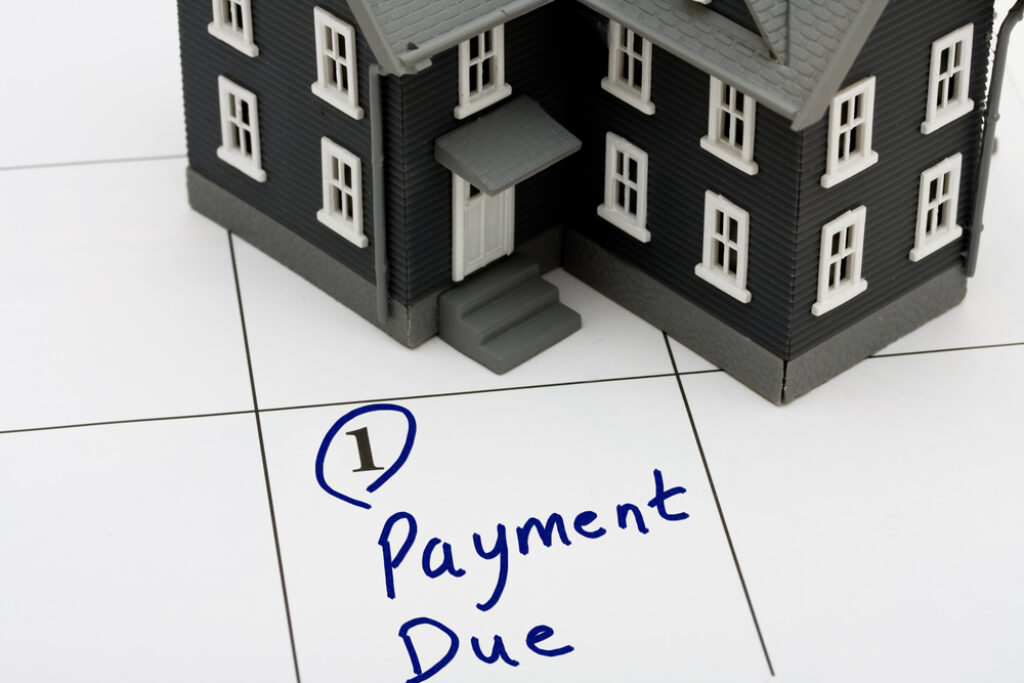More than a tenth – 16% – of people do not feel confident about their ability to make their mortgage or rental payments, research from a bank has shown.
Data from Barclays revealed that 18% were cutting back on spending to cover rising housing costs.
The research also found that a tenth of homeowners were retrofitting their homes to reduce energy bills.
Some homeowners are trying to increase their income, with 3% letting out a room in the last year. This figure rises to 12% for homeowners in London.
Despite this lack of confidence and readjustment of spending habits, consumer spending on mortgage and rental payments rose by just 1.8% in March. This was down from a peak of 12.2% in June last year. It was also the lowest annual rise in spending on mortgages and rent since March 2023.
Renters said they were also feeling the financial pressure, as the research found that 22% felt there was too much competition for rental properties in their local area, meaning they were getting less value for money.
Meanwhile, renters said the current cost of living made it harder for them to save, and a quarter said this was the biggest barrier to homeownership.
Household spending dropped by 5.2% in March, and 16% of people said they were putting off home renovations.
Consumers’ confidence in spending on non-essential items fell to 55% in March, while their faith in their household finances was steady at 67%.
Housing costs are stabilising
Mark Arnold, head of savings and mortgages at Barclays UK, said: “Non-essential spending is still reeling from last year’s spike in housing costs, which caused both homeowners and renters to cut back while looking for additional sources of income – such as delaying renovations and renting out spare rooms.
“However, there are reasons to be optimistic – our data shows that housing costs are stabilising, the inflationary tide is easing, and interest rates are predicted to fall over the coming months, all of which should translate into increased consumer confidence and spending.
“Moreover, homeowners are taking sensible steps to safeguard themselves from future energy price shocks – with upgrades such as installing a heat pump or solar panels to improve energy efficiency also becoming popular. We want to help make those changes more affordable for customers, through schemes such as the Barclays Greener Home Reward, which gives a cash reward of up to £2,000 to UK residential mortgage customers who install a qualifying home energy-efficiency improvement.”
Card spending stalls
An analysis of Barclays’ credit and debit accounts revealed that consumer card spending was flat at 1.9% in March and lower than the Consumer Prices Index including owner-occupiers’ housing costs (CPIH) inflation rate of 3.8%.
Barclays said this was due to a slowdown in non-essential spending, which increased by 1.6% – the lowest growth rate since September 2022.
This was brought down by weaker retail and restaurant sales.
Retail spending was flat at 0.7%, while spending in restaurants declined by 12.6%.
This coincided with 45% of consumers saying they were cutting back on discretionary spending, with 53% reducing their clothing and accessories purchases and 47% spending less on eating out.
Karen Johnson, head of retail at Barclays, said: “Retailers were braced for a more subdued start to 2024, and recent figures are in line with expectations. The wet weather has been a key factor in the slowdown in discretionary spending, as it’s meant fewer visits to the high street and to hospitality venues.
“However, in spite of this initial lull, many retailers are confident that spending will rebound in the coming months, particularly in anticipation of better weather, the energy price cap drop, an uplift in the National Minimum Wage, and the buzz around major events such as Taylor Swift’s Eras Tour and the Paris 2024 Olympics.”
Jack Meaning, chief UK economist at Barclays, said: “While still only tentative, the signs that the UK economy is expanding into 2024 continue to build. With an expectation that the Bank of England will cut interest rates from June, and banks responding by reducing mortgage rates, our research suggests that the housing costs that have been a drag on consumers for over a year are on the cusp of a turn, and will become a boost to spending from H2 and beyond. Today’s data shows this transition happening in real time.”
Related: Housing in England and Wales unaffordable since 2002





